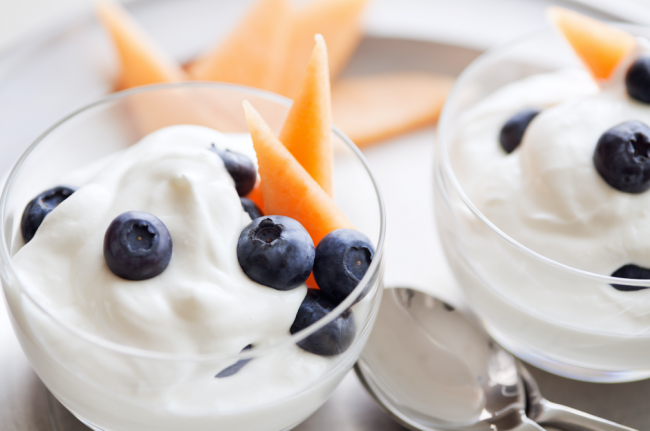
What are probiotics? Why do I need them? I get asked these questions a lot so I thought I’d share some more information here. Any questions? You know where to find me!
WHAT ARE PROBIOTICS? WHAT DO THEY DO?
Probiotics are essentially “good bacteria” that line your gut. These “good guys” and are responsible for a number of tasks including:
- Nutrient Absorption
- Digestive Health
- Mood Stabilisation
- Production of Vitamin K2, Enzymes, B-Vitamins and SCFA Butyrate
- Crowding out the “bad bacteria”, yeasts and fungi
- Modulation of the IgA and IgG immune cells, B & T Cells and our inflammatory response
- Immune Modulation
- Healthy bowel movements (read more about this here).
But before you reach for the probiotic supplement, there’s more pieces of the puzzle to consider.
DO I HAVE ENOUGH GUT BACTERIA?
Before we delve in, what I need to stress is that it’s not microbial numbers that are of the greatest importance to good gut health, but diversity. What does this mean? There are thousands of different species of bacteria that have been found in the gut. Research suggests that a diverse range of these species as opposed to copious amounts of 2-3 species is key to good health.
Now we’ve cleared that up, given we’re currently exposed to an unprecedented level of environmental toxins, medications, the oral contraceptive pill, antibiotics, processed foods, sugars and STRESS our digestive system is put under it’s own form of ongoing stress and as such the natural “environment” in which these “good guys” flourish, starts to become a little tumultuous. As a result, we see a shift in bacteria numbers towards what some might call the more “resilient” species and our microbial diversity goes down the drain.
WHAT DOES THIS MEAN?
A loss in diversity means we’re more likely to experience a range health issues. Several studies have shown that healthy people have greater diversity of bacterial species in their gut, whilst sick people have a significantly reduced species diversity.
Bacterial diversity has been reduced in people with…
- Excess body fat, insulin resistance, high blood cholesterol, and high levels of inflammation
- Chronic fatigue syndrome
- Asthma and allergic diseases
- Crohn’s disease and ulcerative colitis (Inflammatory Bowel Disease)
- Irritable bowel syndrome and loose stool or diarrhoea
- Type 1 diabetes
- PCOS
- Urinary Tract Infections
- Thrush/Candida
- Food Borne Illness
And that’s not all… but not a bad list to get you started right?
SHOULD I SUPPLEMENT WITH PROBIOTICS??
I see a number of patients with gut issues that have been supplementing with probiotics off the shelf for years. They’ve noticed no change in their gut health and they’re completely and utterly confused. When I question them, we quickly realise they fall into one (or more) of the following categories:
- They’ve been supplementing with the same strains of bacteria for MONTHS on end –> limiting their diversity score.
- The strains they have been taking are not suitable for their presenting condition –> figuratively speaking it’s like supplementing with carrots, when you need pineapples.
- The gut environment is not healthy and therefore the bacteria aren’t planning on sticking around –> think of it this way, the bacteria packed for a tropical island getaway and they’ve landed in the middle of a war zone. I don’t like their chances either.
- The patient isn’t eating enough of the right foods to support this bacteria’s growth. Just like humans, if we don’t eat, we don’t survive.
- Usually because of a combination of the above, for one reason or another, the bacteria have set up shop in the wrong area of the gastrointestinal tract and as such, have created a new problem altogether; this problem, commonly referred to SIBO or small intestinal bacterial overgrowth has been linked to symptoms such as bloating, abdominal pain or discomfort, excessive gas, loose bowels, B12 deficiency, poor fat absorption and more.
SO… if you want to supplement, ensure your gut integrity (gut walls, gut lining, gut pH, digestive function etc.) is SOUND before seeking advice from a health practitioner who specialises in this area. He/she will then determine what strains are best for you, an appropriate dose and treatment protocol. In my personal opinion, if you don’t you run the risk of making the problem worse.
HOW DO I BOOST MY PROBIOTIC POPULATION WITHOUT SUPPLEMENTS?
Historically, we managed to eat a whole lot of probiotics in our food, not only from the soil as the vegetables were pulled from the garden, but also via the art of natural fermentation given the lack of refrigeration, lack of pasteurisation and of course the lack of processed foods. These days, this is simply not the case anymore. So what do we do?
In order to boost our intake and lifespan of a healthy and diverse gut microbiome, you may want to consider the following:
- Apple Cider Vinegar – Apple Cider Vinegar contains gluconic acid and acetic acid, that helps create a hospitable pH level in the body. This level of pH may help support the colonisation of probiotics in our system. Add 1 tbsp. of Apple Cider Vinegar to your a small glass of water twice daily, preferably before meals.
- Eat a diet high in prebiotic fibre – The good news is, greater fibre intake has been associated with greater diversity in a number of studies (no supplements required). Eat lots of plant-based foods (so many vegetables, of all different colours) as well as adequate fibre.
- Stress Less – Reduce your exposure to environmental toxins, medications, the oral contraceptive pill, antibiotics, processed foods, sugars and emotional stress (work, relationship, family, friends) and boost your intake of the good stuff – rest, sleep, nutrients and exercise. These all impact our gut bacteria as well as our overall wellbeing, so let’s bring them into balance once and for all.
- Eat Probiotic Rich Foods – Whilst it’s never my first port of call, probiotic foods do have a place in this process. Jump on over to ‘My Favourite Probiotic Foods‘ for more information.
Do you take Probiotics? Did you find they improved your health or hindered? I would love to know your thoughts.






0 Comments